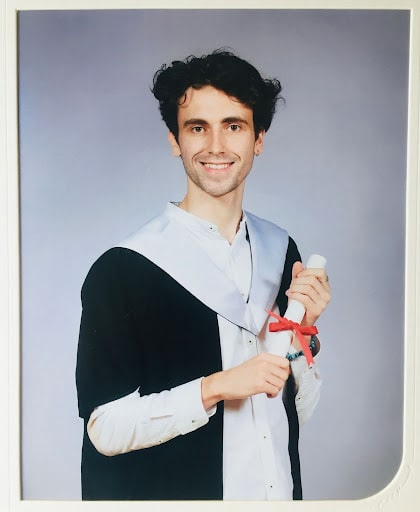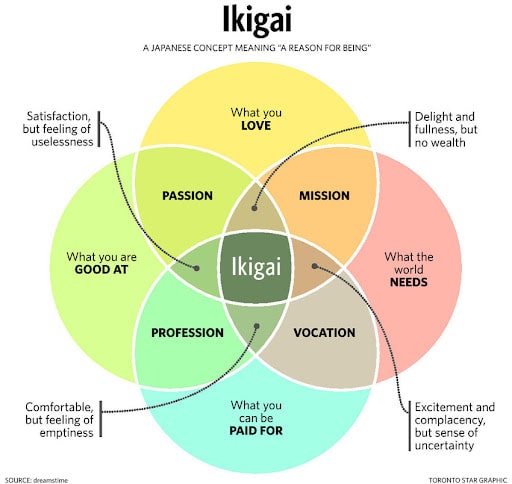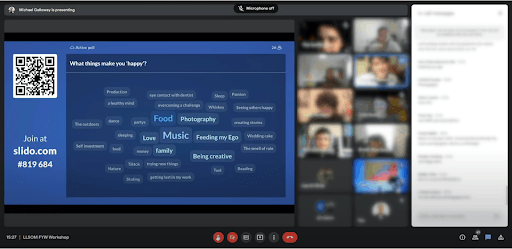Image source: https://www.ted.com/playlists/313/talks_to_help_you_find_your_pu
According to a recent poll, 90% of young people feel like they don’t have any innate purpose in life, or are struggling to find a meaningful place in the world. As sobering as this statistic may be, it comes as no surprise given what society has had to endure over the last few years. The pandemic, continuing conflicts and recently emerging ones, have all contributed to an inevitable onslaught of economic consequences, with the younger generation left to weather this storm. The scope of possibility for the youth of today should be historically wide, with more resources and technology available than ever before, but it often feels like we are peering into a microscope for some miraculous genesis of opportunity. The ‘pull your bootstraps’ mentality frequently prescribed to us is not only out of touch but largely futile.
That being said, I don’t wish to contribute to the narrative that the Gen-Z/Millennial demographic is afflicted with more ‘struggle’ than prior generations. Every society has fallen ill to disparity and conflict, and this type of competitive generational wallowing I think is unhelpful. However, it’s certainly no question that the barrier to previously available opportunities has been steeply raised for the younger generation. In this short blog post, I’m neither concerned nor particularly equipped to discuss the socio-economic factors at play. I’m fundamentally interested in “purpose” and my experience with this topic since joining Ethos.
I’ve always been fascinated by the idea of purpose. As a child and teenager, I was bursting with it. I was fortunate enough to be raised in a reasonably well-off household, with parents that enabled me to explore and try out different things. I wanted to join the police, then be a scientist, then a filmmaker, or photographer, and finally, I settled on Music. It was the one thing that remained consistent through my erratic adolescent years. I went on to study it at University and was certain that was what I needed to do.
Of course, four years feels like a lifetime.

Then I graduated, and ‘adult’ life emerged from the undergrowth and finally got hold of me. Council Tax, regular tax, energy tariffs, HMRC, DWP, DVLA.
It was like I was struck with an exam on bureaucracy that I had never taken a single class on.
While being inundated with cryptic terminology, I was also trying to discern what constituted ‘smart-casual’ and the importance of my credit score.
For the first time in my life that ‘purpose’ was lost, and this post-graduate crisis switched my concern from meaning to survival.
It was at this point, after resorting to universal credit, that I found Ethos and their youth employment project, Young Leaders. I was sceptical initially of their approach to work, as I wasn’t aware of it being practically used in any other business setting. Being afforded a level of unconditional trust was something I had never been given before in a work environment. As a fresh graduate with no real professional experience or ‘soft’ skills, it was difficult to see why this faith was deserved. I was filled with equal amounts of confusion and gratitude, and Ethos has continued to give me a plethora of learning opportunities and experiences. However, I want to recount one particular experience which has been the most personally fulfilling.
I was tasked with adapting and developing a workshop on “Finding Your Why” for Lisa Lashes School of Music, a music school with whom we had begun collaborating with. I had never delivered a workshop before, let alone to a group of seventy similarly sceptical young people. It was an exciting prospect, but I was currently embroiled in uncertainty around my purpose and place in the world. I couldn’t help but question my ability to carry this forward.
Why should another directionless young person be speaking about this? Why should I be proposing strategies for a battle I am currently in the throes of? It felt like a monumental task. But upon attempting to condense and communicate this idea into a teachable product, I realised things about purpose and meaning I never had before. My insecurity gave me more authority to speak about this issue, providing I was honest and sincere about it. While I could write extensively about this experience, there are three main takeaways I have with regards to “Finding Your Why” which I would like to communicate:

Image Source: https://www.weforum.org/agenda/2017/08/is-this-japanese-concept-the-secret-to-a-long-life/
1. It is a continuous and ongoing process, with no definitive end result.
Life has a bearing on your “why”. Constantly changing circumstances and predicaments will inevitably affect what direction you decide to go in. It’s okay to have an idea and then change it, or to not have any idea at all. No one has a singular, independent and immovable purpose.
2. This gives you permission to constantly explore, alter and question your “why”.
Even if you feel you are certain of an innate purpose, it is important to question it and allow it to change. Thinking about one central reason for being is restricting rather than liberating. If two people believe music is their “why”, one may pursue it for money and recognition, while the other may want to help their community and provide outlets for disadvantaged people. Music is their common passion, but their “why” is different.
3. Arriving closer to your “why” is not only beneficial to yourself, but your community and broader society.
Finding your purpose may seem like a somewhat self-interested endeavour, and unfortunately, there is a significant number of people who aren’t blessed with the freedom to fully explore and develop this for themselves (we can’t all go on a soul-searching “gap-yah” or study three different degrees). But if more people could arrive closer to a sense of meaning, it’s not only fulfilling for the self but socially fruitful. A workforce that sees a purpose and meaning in what they do is a more productive one, which yields better results for society as a whole.

When it came to delivering the workshop, with the help of the team who supported me, it was an incredibly enlightening experience. Hearing people’s questions, fears, hopes, desires and aspirations was productive and cathartic for all involved. While I’m sure no one came out of it enlightened by some new profound epiphany, I hoped that we were able to provoke some constructive thoughts around this question which we all face. And through this process, I was surprised at how much I questioned myself, and how this brought me closer to finding my own, ‘why’.
Michael Galloway is an Ethos Young Leader.
Find out more about our Young Leaders work experience project.
